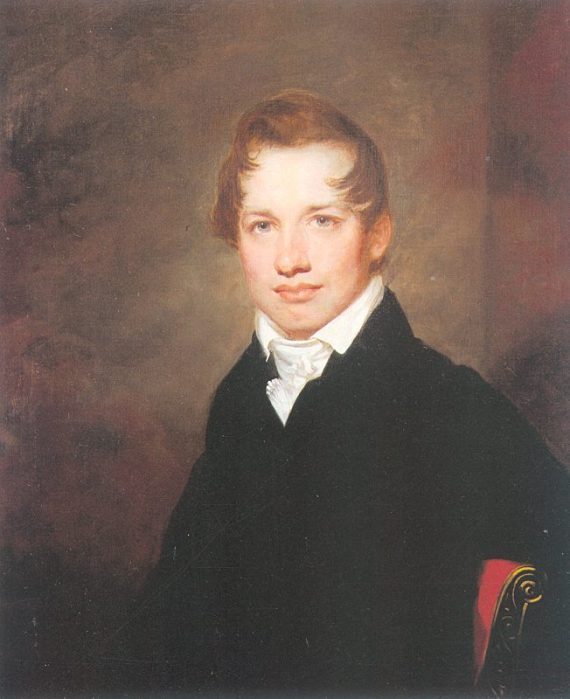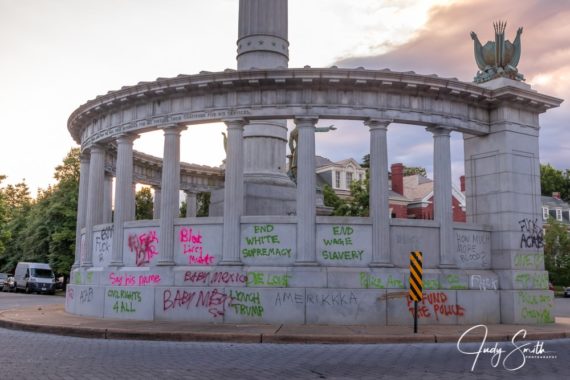Sir, South Carolina has not gone one step further than Mr. Jefferson himself was disposed to go in relation to the present subject of our present complaints; not a step further than the statesmen from New England were disposed to go under similar circumstances; no further than the senator from Massachusetts himself once considered as within “the limits of a constitutional opposition.” The doctrine that it is the right of a state to judge of the violations of the constitution on the part of the Federal government and to protect her citizens from the operations of unconstitutional laws was held by the enlightened citizens of Boston who assembled in Faneuil Hall on the 25th of January, 1809. They state in that celebrated memorial that “they looked only to the state legislature, who were competent to devise relief against the unconstitutional acts of the general government. That your power (say they) is adequate to that object is evident from the organization of the Confederacy.”
A distinguished senator from one of the New England states [Mr. Hillhouse], in a speech delivered here on a bill for enforcing the embargo, declared:
“I feel myself bound in conscience to declare (lest the blood of those who shall fall in the execution of this measure shall be on my head) that I consider this to be an act which directs a mortal blow at the liberties of my country; an act containing unconstitutional provisions to which the people are not bound to submit, and to which in my opinion they will not submit.”
And the senator from Massachusetts himself (Daniel Webster), in a speech delivered on the same subject in the other House, said:
“This opposition is constitutional and legal; it is also conscientious. It rests on settled and sober conviction that such policy is destructive to the interests of the people and dangerous to the being of government. The experience of every day confirms these sentiments. Men who act from such motives are not to be discouraged by trifling obstacles nor awed by any dangers. They know the limit of constitutional opposition; up to that limit, at their own discretion, they will walk, and walk fearlessly.”
How “the being of the government” was to be endangered by “constitutional opposition” to the embargo I leave to the gentleman to explain.
Thus it will be seen, Mr. President, that the South Carolina doctrine is the republican doctrine of ’98; that it was promulgated by the fathers of the faith; that it was maintained by Virginia and Kentucky in the worst of times; that it constituted the very pivot on which the political revolution of that day turned; that it embraces the very principles, the triumph of which at that time saved the constitution at its last gasp, and which New England statesmen were not unwilling to adopt when they believed themselves to be the victims of unconstitutional legislation. Sir, as to the doctrine that the Federal government is the exclusive judge of the extent as well as the limitations of its powers, it seems to me to be utterly subversive of the sovereignty and independence of the states.
It makes but little difference in my estimation whether Congress or the Supreme Court are invested with this power. If the Federal government in all or any of its departments is to prescribe the limits of its own authority, and the states are bound to submit to the decision and are not allowed to examine and decide for themselves when the barriers of the constitution shall be overleaped, this is practically “a government ‘without limitation of powers.”
The states are at once reduced to mere petty corporations and the people are entirely at your mercy. I have but one word more to add. In all the efforts that have been made by South Carolina to resist the unconstitutional laws which Congress has extended over them, she has kept steadily in view the preservation of the Union by the only means by which she believes it can long be preserved—a firm, manly, and steady resistance against usurpation.
The measures of the Federal government have, it is true, prostrated her interests, and will soon involve the whole South in irretrievable ruin. But even this evil, great as it is, is not the chief ground of our complaints. It is the principle involved in the contest, a principle which, substituting the discretion of Congress for the limitations of the constitution, brings the states and the people to the feet of the Federal government and leaves them nothing they can call their own.
Sir, if the measures of the Federal government were less oppressive we should still strive against this usurpation. The South is acting on a principle she has always held sacred—resistance to unauthorized taxation.
Sir, if in acting on these high motives, if animated by that ardent love of liberty which has always been the most prominent trait in the Southern character, we should be hurried beyond the bounds of a cold and calculating prudence, who is there with one noble and generous sentiment in his bosom that would not be disposed, in the language of Burke, to exclaim, “You must pardon something to the spirit of liberty!”








How shall sovereign citizens of the U.S. deal with WHO usurpation of our country’s sovereignty?